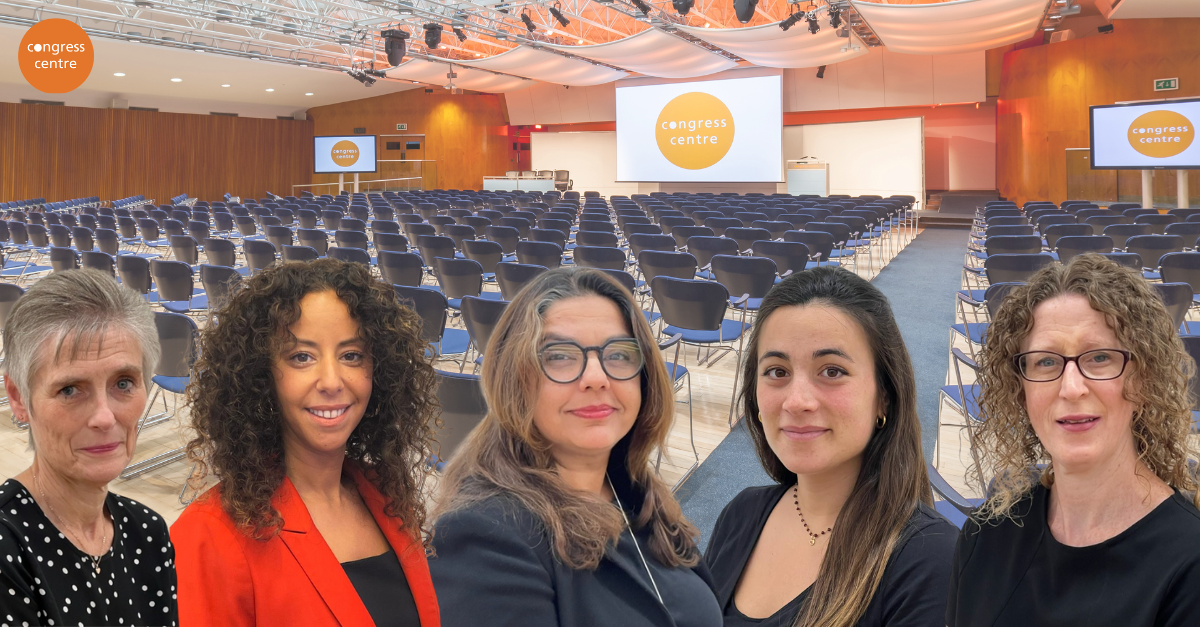
March is Women’s History Month and here at Congress Centre we think it’s an occasion worth celebrating! It’s a great opportunity to look back at the progress the UK has made in forging equality for women in the event industry – and the workplace in general. From the Equal Pay Act in 1970 and the Sex Discrimination Act of 1975 to the Equality Act of 2010, there have been huge steps forward in levelling the field of play.
However, it will come as no surprise that there is still a long way to go before we can claim that gender equality has finally reached the working world. Let’s dive into the issues which still affect women in business today, particularly women of colour, and hear from the female staff here at Congress Centre.
Employment rates for women in the workplace have been steadily on the rise since the 1970s with only 53% of women (aged 16-64) in employment in 1971, rising to 67% in 2013 all the way up to 78% in 2024 (for women aged 25-54). While the representation of women in the workplace has seen a huge increase, unfortunately, the pay gap – although narrowing – persists. Women in the UK earn, on average, 14.9% less an hour than men. In terms of the top jobs, female industry leaders are on the rise, however as of August 2023, only 9 of the FTSE 100 CEOs were women. Source
‘I would say that the events industry has always got work-life balance challenges for women. Demanding work schedules and personal and family responsibilities can be particularly challenging for women in this industry, where long hours and irregular work schedules are common.’
– Elena Ortiz Gil, Conference and Sales Co-ordinator, Congress Centre
The great news is that female entrepreneurs are on the rise. 2022 saw the launch of over 150,000 companies founded by women which made up 20% of the total number of new businesses. This is more than ever before and more than double the number in 2018. Unfortunately, funding for female-led businesses is significantly lower than that for male-led companies, with the average loans approved for the two categories standing at £174,000 and £507,000 respectively. Source
Women of colour are the least represented group in leadership positions in UK businesses. Fawcett Society, a leading gender equality organisation published a survey of 2,000 women which said 75% of women of colour had experienced racism at work. Barriers for women of colour include unconscious bias, salary discrimination, cultural insensitivity and microaggressions. Source
‘I have been in the events industry for over 30 years. When I first started out the first sight of racism was when I went to a year’s placement. I only found out when I got there that I nearly did not get the job because of my name. On seeing my full name, Ropinder, they thought I may be too dark for the role. This was for a hotel in Scotland! It actually turned out to be a great experience and I did not have problems while I was there.’
– Ruby Chagger, Conference and Sales Manager, Congress Centre
There’s a long way to go and a lot that can be done to advocate for policy change and to fight discrimination. By building supportive networks and safe spaces in which people can discuss their experiences and ideas for moving forward, women can feel empowered to foster future change.
‘Being surrounded by mainly women throughout my career in the events industry, I feel I have been really lucky to have worked with some amazing and inspiring women.
I have always felt empowered within my teams of female leaders, as I feel it is really important to have leadership from someone who understands our struggles and the barriers that we face whether it be discrimination or the gender pay gap. Despite our significant contributions to the industry, [women in events can still be] under-promoted, underpaid, and under-celebrated compared to our male counterparts.’
– Nadia Scott, Senior Conference and Sales Co-ordinator, Congress Centre
Keeping the conversation going is crucial. Speak up in meetings, ask questions, call out inappropriate behaviour or policies and encourage transparency between management and employees. There are also several charities and associations which women can join or go to for advice and be directed to the most appropriate place for support. A good starting point is The Fawcett Society, a charity which has been championing women’s rights since 1866.
We’re proud to host numerous events at Congress Centre which are either organised by women planners, hosted by female-led companies or events which are specifically designed to champion women in the workplace, like the careers event run by STEM Women.
If you think Congress Centre sounds like the sort of venue in which you’d like to hold your next event, please don’t hesitate to give our sales team a call on 020 7467 1318, or drop them an email on congress.centre@tuc.org.uk.
